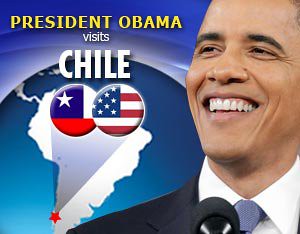America’s Budget Battle is Actually a “Political Performance”
(China) on 10 March 2011
by Zhang Zhixin (link to original)
On March 4, the fierce confrontation between the U.S. Democratic and Republican parties on budget issues ended. Congressmen from both parties finally struck a compromise on the case of interim government expenditure, avoiding the first “close” crisis of federal government in 15 years.
Republicans had boycotted the budget for the 2011 fiscal year since it was raised in the first half of last year, delaying its adoption. Therefore, since the new fiscal year began last October, the federal government has barely been functioning, relying on a “temporary stop gap” measure passed by Congress. The two parties’ compromise on March 4 has only prolonged the above measure to March 18.
After all, the budget battle was due to a lack of money. In the 2010 fiscal year, U.S. federal revenue was $2.16 trillion and expenditures were $3.45 trillion, which left a deficit of $1.29 trillion. Republicans have been causing trouble for the Democratic government on the annual budget because the federal financial deficit is nearly 9 percent of GNP. If left unchecked, this “time bomb” could explode at any time, causing incalculable damage to the U.S. economy.
Republicans have always pursued a conservative financial philosophy, advocating spending cuts, reducing the size of government and cutting taxes. In the 2010 mid-term election, many Republican representatives were elected based on their banner of “reducing the deficit, increasing employment.” Thus, the new representatives would inevitably perform an operation on the new unsanctioned 2011 fiscal budget case, showing their own “listening to the public voice” attitude. The other reason for the Republicans’ attack was to suppress the effect of Obama’s health care and financial regulatory reforms, paving the way for the next election.
It’s not that Democrats don’t know the risk of the high deficit; however, under the circumstances of the economy’s weak recovery, they insist that maintaining economic growth is much more important than decreasing the deficit. The Democrats traditional practice involves using government investment to spur the private sector to accelerate economic growth. Investment needs money, and raising taxes is impossible under the Republicans’ objection. The only way is to save energy — by cutting the budget. However, Democrats are famous for their attention to the welfare of the middle and lower classes and minority communities, and a large proportion of federal expense was used for Social Security and health care, so cutting this portion of the budget is undoubtedly discarding the Democrats’ staunchest supporters. Next year’s election is around the corner, and Obama obviously doesn’t want to “destroy the foundation.”
Of course, when facing the 2012 presidential election, deciding whether to stick to increased investment or to cut the deficit, neither of the two parties wants to be too decisive on the budget issue, incurring public resentment. In 1996, because of the “uncooperative” Congress controlled by Republicans regarding the budget, the Republican government shut down for 21 days, enormously affecting public life. In the following congressional elections, the public punished Republicans by voting against them. Therefore, anyone of the two parties who’s eyeing the presidency will be especially cautious.
This bipartisan compromise was attributed to Republicans’ first gesture of goodwill; the two then quickly reached an agreement. Although, the bipartisan budget battle will continue in the near future, reaching an agreement is no suspense. By that token, this fierce budget battle is a war of governing ideas and also more like a “political performance” or “tempest in a teapot,” targeted on winning over the public minds and votes before the election.

